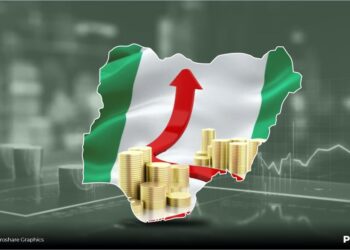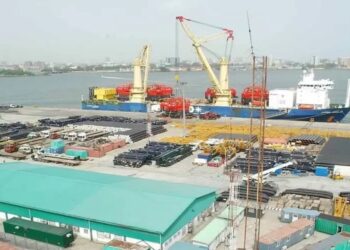Did President Bola Ahmed Tinubu hit the ground running. “….read my lips’ subsidy is gone” not going going but gone. Next to exit was the obnoxiously managed forex allocation. Obnoxious because it held back the whole economy just to enrich a few. Next was Emefiele with no one shedding tears for him as he is the fall guy for the morass of the last administration. The two policy pronouncements point to a Chief Executive Officer on a rescue mission, a rescue mission to fix a rundown enterprise and the new CEO appears to be armed with knowledge of issues running the company aground, pun intended.
Pseudo-socialists love the hoi polloi unlike we liberals who exploit the masses, have asked Tinubu why so fast ? Slow down, better introduce bandaid for the people than inflict pain that come with the needed but painful therapy. The same people who applauded Buhari’s unorthodoxy and supposedly people oriented paliatives and policies that eventually minted more poverty are vilifying Tinubu for moving too fast! Continue the almsification of the Nigerian economy. Give Nigerians fish, no need to get them participating in the baking of a bigger national pie and earning good wages while enlarging the national cake, the GDP.
Tinubu’s policy pronouncements are in stark opposition to the inactions of Baba go slow of eight years ago. On assumption of office former President Muhammadu Buhari had the political capital and supposed integrity to let go of subsidy, a good fortune President Jonathan did not have by 2012. Rather Buhari entrenched PMS subsidy. Furthermore he reintroduced fiat fixing of naira valuation which had been abandoned after the last military regimes of Abacha and Abdulsallam. Unfortunately it has been erroneously reported that Buhari’s removal of subsidy in 2017 led Nigeria into the recession of 2016/17. It was the fixing of the Naira at 197 to the dollar that led to the recession as investors vacated the country, FDI froze and remittances dropped. The decline in economic growth that began from heights of 2014 was not stemmed by the new regime in 2015. It was hastened and we landed in recession in 2016.These two policies of Buhari despite depressing the economy, was well received and applauded by today’s naysayers.
Intellectuals for the Buhari administration led by former finance minister Kemi Adeosun, totally misdiagnosed what brought on the collapse of growth in the economy and when you misdiagnose you misadminister. They applied Keynesian reflation to what was a paucity of dollars balance of trade problem. The aftermath of this wrong prescription we see in today’s penchant for borrowing and turning on the money printing press. Add this to imported inflation by naira having losing five times its value in eight years. The naysayers would want us believe its Tinubu’s reversal of policy to pre-Buhari years that is bringing on hardship. Not forgetting how they hailed Buharinomics as he applied the wrecking ball to the Nigerian economy saying, ‘he, Buhari was laying a foundation’.
They loved Buharinomics because they perceived it as being anti-capitalist and pro-people emulating late Chavez of Venezuela. Buhari’s unorthodoxy, alms awarding social intervention schemes seemed right to them. Yet the economy remained depressed and hardship in the land became more intense. Not till they witnessed the increasing poverty in the land did they distance themselves from Buhari.
Nigerians have short memories, sooner than later Nigeria’s economic woes will be heaped on the yet-to-be-confirmed President Tinubu as happened with former President Ibrahim Badamasi Babangida, IBB. Economic woes of 1980s and 90s with roots in apalling economic policy choices of 1960s and 70s were later heaped on IBB. Examples of policy choices include the adoption of import substitution industrialisation rather than value addition to our traditional commodity exports. Coupled to this was a strong naira monetary policy during the oil boom years that guaranteed we caught the Dutch Disease thus wrecking the nascent industrial and agricultural sectors. These policies were upended when oil prices crashed under President Shagari in 1982. Nothing was done about the structural defects of the Nigerian economy until IBB took over in 1985 and introduced the Structural Adjustment Program in 1986. His attempts to address the structural defects of the Nigerian economy earned him the opprobrium of being the architect of Nigerian economic woes through his introduction of SAP. Yet the word Structural, either as structural defects or structural reforms keep being cited in current discussions about what changes is required to fix the defective Nigerian economy.
Asiwaju should expect the same treatment General Babangida received and I believe it has begun. However he should not relent, in fact he should dig in and go deeper than IBBs or OBJs reforms that delivered to Nigeria the country’s fastest growth for fourteen 14 years. It is the absence of this growth profile that led to Nigeria becoming the poverty capital of the world and it is a return to this growth especially to a double digit growth profile that will bailout the poor. Double Digit Growth (DDG) means the poor will receive better wages as they participate in baking the national cake. You have begun with the right body language, time to concentrate on the real grunt work and please enough of your travelling.
To achieve DDG and translate Nigeria into a trillion dollar economy, doubling the national cake within seven years, you have to concentrate and improve on things not done by the previous liberal administrations of Babangida and Obasanjo. These are objectives not achieved during the structural adjustments and reforms, SAP1 & SAP2, of Babangida and Obasanjo respectively. Most abysmal of these is the total failure of non-oil exports and this has led to impoverishing our people because the monetary authorities have lost control over the value of the naira as they depended only on oil receipts which have become inadequate. Increase in non-oil exports was one of the requirements of SAP1 but the Nigerian business elite did not buy in and to date only Dangote Group factors exports in it’s investments.
Before Dangote Group in large scale industrial export was OLAM Conglomerate with origins in Nigeria. They started exporting cashew nuts from Nigeria during SAP1 of 1980s. In SAP2 years of Obasanjo OLAM added the previously unknown export of polished sesame seeds and knocked off cocoa beans as the number one Nigerian non-oil export. They are being challenged by Dangote Groups export of fertiliser in this SAP3 era. This highlights what is doable for the monetary authorities to achieve control of the naira value vis a vis the dollar.
While manufacturing accounts for 50 per cent of imports into Nigeria it accounts for a meagre 3 per cent of Nigerian exports, this disconnect cannot be allowed to continue. Nigeria should have industrialised through high value addition to its primary commodities before export but we industrialised through import substitution policy. Ultimately this has made Nigeria an import business country. It is through our failure here that the monetary authorities have lost control of the naira and with this loss the authorities impoverishes every Nigerian except those in diaspora who earn in dollars or those with direct access to CBN governor. If we want the poor to breathe, engaging in export of manufactures to firm up the Naira is the sector with the answers. Furtherance of CBN RT 200 Billion dollars targets and achieving foreign reserves of over $100 billion USD are milestones for the Central Bank. On achieving this, it would be possible to defend the naira if runaway speculation occurs. Slow paced depreciation is good for the economy as it is good for exporters and anything good for Nigerian non-oil exporters is good for the Nigerian economy.
A failure of past liberal administrations is in infrastructure acquisition where your predecessor is thought of having made giant strides. We have been brought to our senses however, being informed that the manner in which Buhari government was acquiring infrastructure was indeed not progressive. We are informed it would take a span of 300 years to achieve minimum required infrastructure the way he, Buhari, was going about it. What is it you have to put right Mr. President? You have to put the horse ahead of the cart. This requires us becoming self sufficient and getting on the surplus side of most materials used in infrastructure construction. Cement, steel, asphalt, aggregates, aluminium and copper cables etc. With accumulation of these and empowering Nigerian construction and engineering you can proceed to build quality infrastructure to your hearts delight and create armies of jobs turning Nigeria into a construction site. This is also an important departure from having to borrow in dollars for infrastructure. The infrastructure funds being floated by the federal government and Africa Development Bank should focus on achieving this self sufficiency in materials and raising in-country capacity for building infrastructure to enviable heights. Not so much as the funds being used to finance projects directly.
A New Fiscal Direction. Reflating the economy by inflating government expenditure is a misdirection for Nigeria. The reverse of curtailing government expenditure should be the path to proceed and implementing the Orosanye report is a place to start. Next is to jettison for now the desire to increase the ratio of tax to GDP to 15 per cent from 8 per cent. Of what use is this when we know government is an inefficient spender? Your government needs revenue which you have reaped from unification of exchange rates and subsidy removal hence no urgency about 15 per cent tax to GDP. You can achieve higher government revenues by achieving higher economic growth rates and making Nigeria a tax haven for businesses.
Sir your Lagos Blueprint of raising Internally Generated Revenues IGR should not be applied in Abuja. As governor you had the good fortunes of better macroeconomic policies. Your time as governor coincided with faster growth of the economy, a stable national currency and increases in remittances that market driven naira value brought, hence rapid development along Lekki axis. All you did was extract IGR, being in Abuja is a different ball game.
A great lesson of the last eight years is that statism as an economic philosophy doesn’t work for Nigeria. Buhari came in and reversed the liberal economic stance of the previous sixteen years and replaced them with interventionist interfering government. My faith in liberal economic policies and private sector leading is based on empirical grounds, yes no alternative to the continuation of SAP — anathema to Nigerian ears. No need to go to the Asian continent for empirical evidence, here in Africa we have the solid example in Botswana.
In the 1960s Botswana was the poorest African nation, today it is third richest going by per capita GDP. From a low of $70 per capita GDP in 1966 they are posting a pc.GDP of almost $7000 while Nigeria’s pc.GDP is $2069. Botswana has maintained a liberal macroeconomic stance since independence in 1966, no policy somersaults. As important is that Botswana chose the right policies unlike Nigeria that chose to run a dirigistic quasi socialist state at independence. Hence the first attempt to move to a more liberal economy during SAP1. Rather than malign SAP this analysis is best way to understand what SAP entails. Nigeria’s next attempt at a liberal private sector driven economy will come with severe pains in the short run. Expected is the usual retort of the socialist, ‘in a short run we are all dead!’ It can’t happen! Nigerians are more resilient than Venezuelans who unfortunately keep to socialist precepts and are worse for it despite having the largest oil deposits in the world.
Asiwaju, the best legacy you should bestow on Nigerians is to help rebirth a new national mentality. A change from government dependency of a people to real independence of the citizenry, who in the words of JFK, will stop thinking of what they get out of government to what they will contribute to the collective Nigerian prosperity.
Olugbenga Jaiyesimi jerry3jaiye@gmail.com





